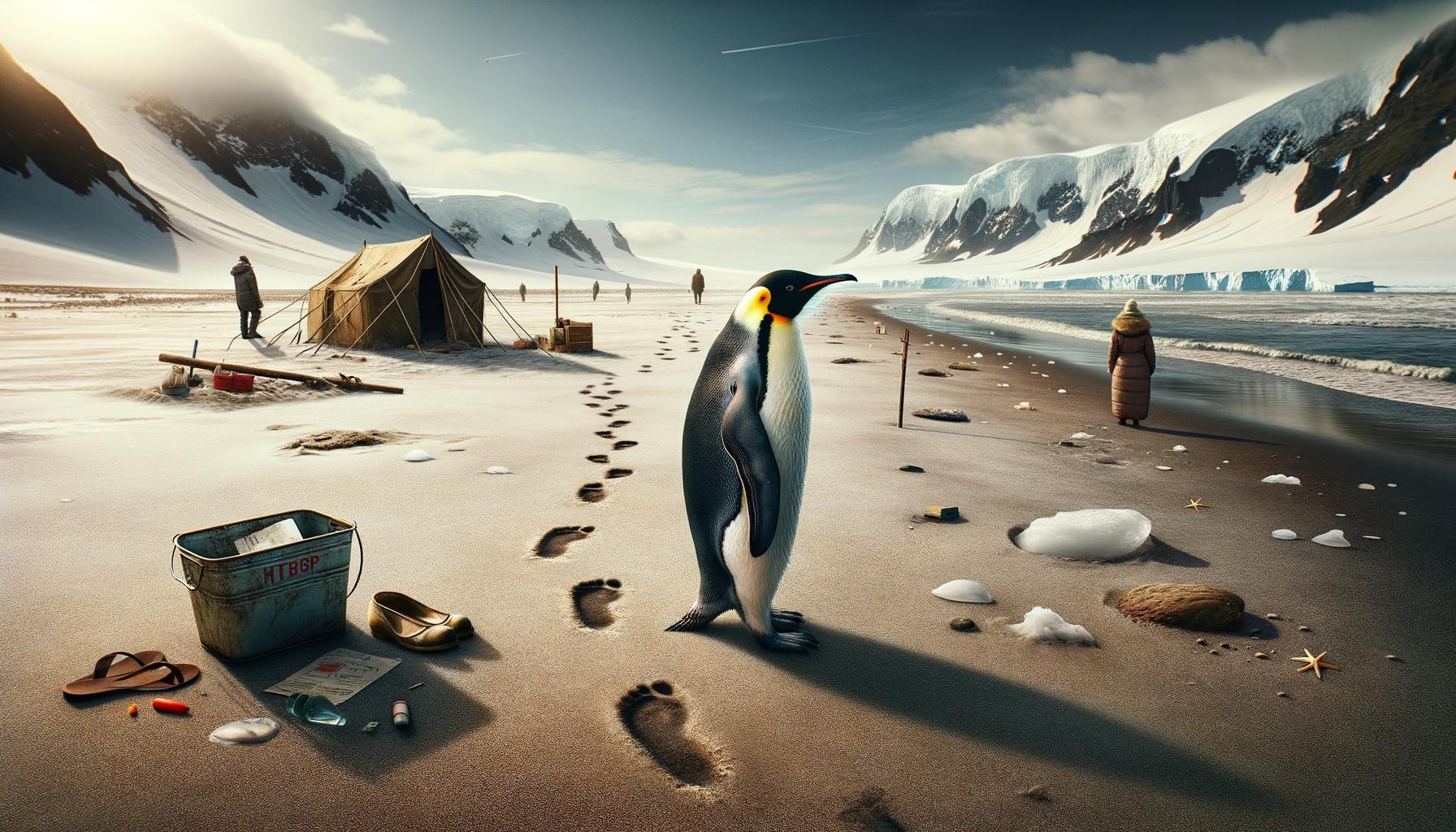In a remarkable turn of events, a male emperor penguin, dubbed Gus, has been discovered stranded on a beach in Denmark, Australia, around 2,200 miles from its Antarctic habitat. Found malnourished on November 1, 2024, this is the first recorded instance of an emperor penguin making such a significant northern journey, with wildlife experts voicing concern over the implications of climate change on the species’ survival.
Gus was spotted by a local surfer, Aaron Fowler, who described the penguin as confident and curious. It waddled ashore, attempting to slide on its belly only to tumble playfully into the sand. This unusual sight raised questions among observers, as emperor penguins are typically seen much further south, with their range extending no further north than about 50 degrees south latitude. Researchers like Belinda Cannell from the University of Western Australia have noted that the penguin’s presence in Denmark marks a significant deviation from its natural habitat.
The adult male, measuring 39 inches tall and weighing just 51 pounds at the time of its discovery, is being treated by seabird rehabilitator Carol Biddulph. To assist in Gus’s recovery, Biddulph is using chilled water mist to acclimatize the penguin to the warmer Australian climate, which poses a stark contrast to its freezing Antarctic environment. A healthy emperor penguin can weigh over 100 pounds, highlighting the malnutrition that Gus is currently facing.
The Western Australia Department of Biodiversity, Conservation and Attractions is actively working on rehabilitating Gus, although the feasibility of returning him to Antarctica remains uncertain. They acknowledged that “options are still being worked through” regarding his potential release back into the wild.
Emperor penguins are increasingly threatened by global warming, with significant impacts on their breeding habitats. According to the World Wildlife Foundation, approximately three-quarters of emperor penguin breeding colonies are now vulnerable to changes in annual sea ice cover, which has become erratic as ocean temperatures rise. This phenomenon jeopardizes the penguins’ breeding cycles, as they rely on stable sea ice for nesting and raising their young. Dr. Birgitte McDonald, an ecologist, emphasized this ongoing challenge, pointing out that “their survival, their ability to reproduce — is 100% tied to having appropriate sea ice.”
The unexpected arrival of Gus has sparked conversations about the broader implications of climate change, not only on wildlife but also on biodiversity and ecosystem stability across the globe. As efforts are made to rehabilitate this extraordinary visitor, the penguin’s plight serves as a poignant reminder of the urgent need to address the pressing issues of climate change and its impact on vulnerable species.

